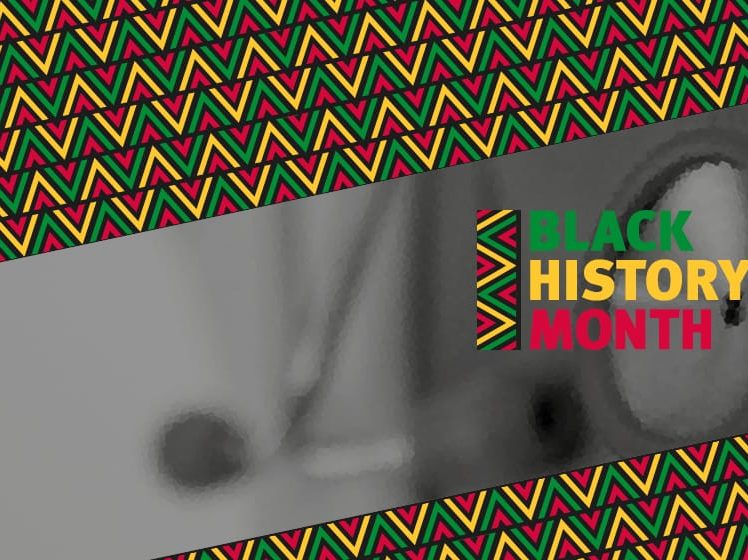Black History Month has been celebrated in the USA in February since 1970. It provides a platform to celebrate the achievements of Black people, which for many years have been overlooked in the teaching of history. It is an excellent opportunity to put a spotlight on the contributions of America’s Black community across science, politics and the arts.
Who was James McCune Smith
James McCune Smith was born into slavery in 1813 in New York City and was freed in 1827 by the Emancipation Act of New York. He went on to study Medicine at the University of Glasgow in Scotland and became the first African-American to receive a medical degree.
As a young man, McCune Smith attended the African Free School in Manhattan and his intellectual gifts were soon noticed and nurtured.
His academic achievements led him to apply to several American universities but he was denied entry due to racial discrimination. His teacher, Reverend Peter Williams, Jr., then encouraged McCune Smith to apply to the University of Glasgow and his application was successful.
Becoming a doctor
His journey to the United Kingdom and his studies were funded by Williams and abolitionist benefactors. Upon arrival, James McCune Smith is said to have enjoyed the relative racial tolerance in England and Scotland.
The country had officially abolished slavery in 1833, and McCune Smith met people in the Scottish and English abolitionist movement through organisations such as the Glasgow Emancipation Society and the London Agency Anti-Slavery Society.
The abolitionist movement was to become a huge part of his life’s work. But first, he focused on earning his qualifications at the University of Glasgow’s Medical School.
During his time in Scotland, McCune Smith gained three qualifications from the University of Glasgow: a bachelor’s degree in 1835, a master’s degree in 1836, and his medical doctorate in 1837.
Returning to the USA
When McCune Smith returned to the USA in 1837, he was the first university-trained African-American physician in the country. While the Black community gave him a hero’s welcome upon his return to New York City, he was not warmly received by everyone.
During his 25 years of practising medicine, he was never admitted to the American Medical Association and faced discrimination throughout his career.
Despite these obstacles, James McCune Smith established a medical practice in Manhattan, started an evening school for children and opened what has been called the first Black-owned and operated pharmacy in the USA.
Working as an abolitionist
On top of all this, McCune Smith worked hard for the abolitionist movement in America. He joined the American Anti-Slavery Society, published lectures and joined committees.
In the 1850s, McCune Smith and Frederick Douglass founded the National Council of Colored People, one of the first permanent Black national organisations. Both men stressed the importance of education and called for more schools for Black children to be established.
“I have striven to obtain education, at every sacrifice and every hazard, and to apply such education to the good of our common country.” — James McCune Smith
Share this quote
Later, he would use the statistical and analytical skills he had gained during his studies at the University of Glasgow to refute racist arguments that attributed negative characteristics to Black people.
He published papers on the subject leading to recognition by scientific organisations, and he subsequently became a founding member of the New York Statistics Institute.
In addition, McCune Smith’s regular columns in Frederick Douglass Paper about African-American culture, politics and literature made him one of the earliest Black public intellectuals to gain prominence in the United States.
Leaving a legacy
James McCune Smith died in 1865 at the age of 52 just 19 days before the ratification of the Thirteenth Amendment to the United States Constitution, which abolished slavery for good.
While he did not live to see the result of his life’s work, there is no doubt that McCune Smith was a leading figure in the abolitionist movement that led to the eradication of slavery in the USA.
At the University of Glasgow, a new £90.6 million learning hub has been named in his honour. The James McCune Smith Learning Hub will provide a state-of-the-art learning and teaching facility with capacity for over 2,500 students.
The naming of this new building is just one aspect of the University’s reparative justice programme, which seeks to research the University of Glasgow’s connections to slavery, understand its history and make it public.
Another important step the University has taken is to sign a Memorandum of Understanding with the University of the West Indies, which is designed to nurture relationships and establish a Glasgow-Caribbean Centre for Development Research.
Follow in Dr. James McCune Smith’s footsteps
If you’re feeling inspired by Dr. James McCune Smith and his remarkable achievements, then use the degree finder below to browse degrees in Medicine and follow in his footsteps.




